I'm trying to solve a DAE in Gekko, where some of the components will depend upon the solution to a convolution integral
This requires a constant dt, but I'm sure that's somewhere in the options. Consequently, what I want to do is use a function to record the current value of a state variable in an array, and return the sum up to that point. Here was my attempt using one of the simple ODE examples:
import numpy as np
from gekko import GEKKO
import matplotlib.pyplot as plt
m = GEKKO()
class adder:
def __init__(self,):
self.i=m.Array(m.Param, 10)
self.count=0
def f(self, y):
self.i[self.count]=y
self.count+=1
return sum(self.i)
a=adder()
m.Equation(y.dt()==-y+1+a.f(y))
m.time = np.linspace(0,5)
m.options.IMODE = 4
m.solve()
but the solution 1) looks incorrect and 2) I can't print anything about the solution using the a.f() function and 3) even when I set the size of the self.i array to 1, it doesn't throw an out of bounds error so I expect it's not being called in the way I think. I've also seen people suggest using the delay() function, but I don't know how to access which timestep I'm currently in and to loop over each previous timestep.
